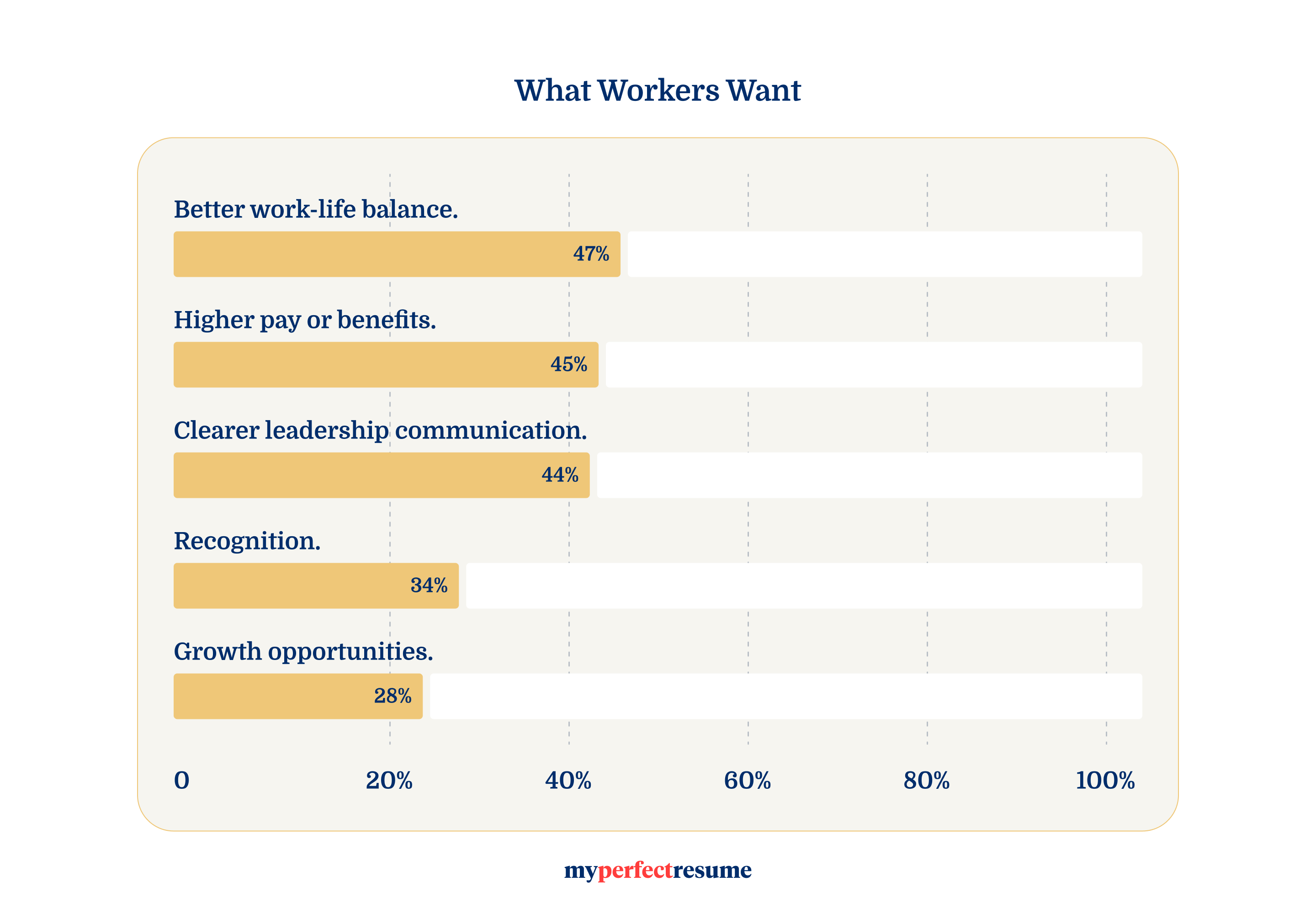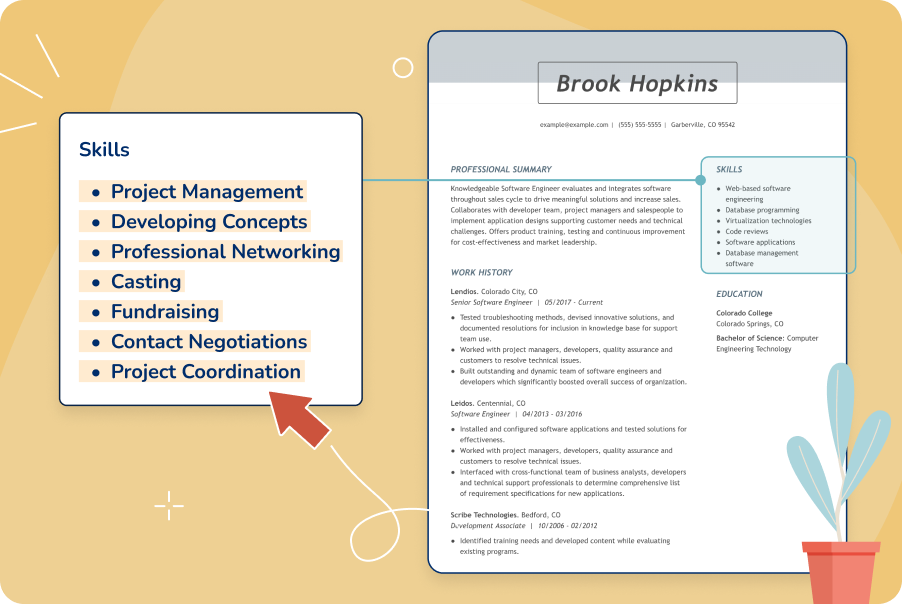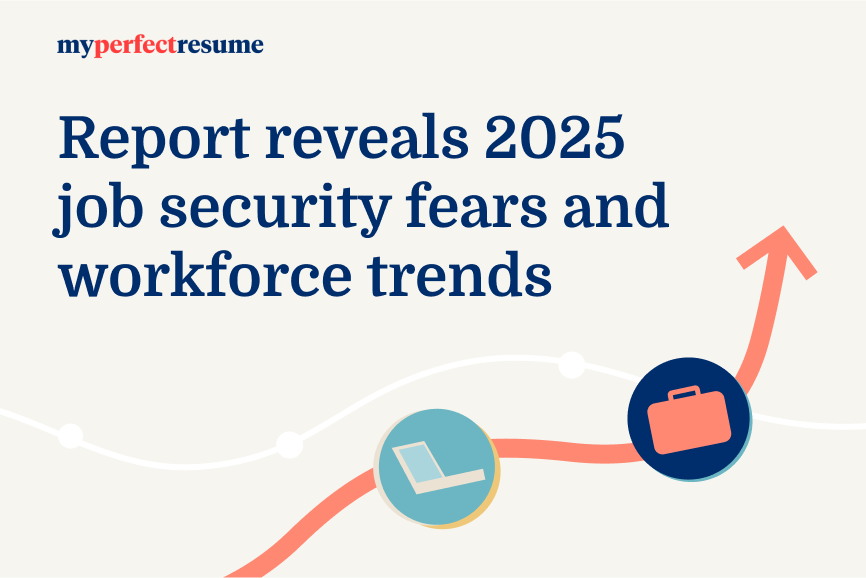Our customers have been hired at: *Foot Note
The modern workplace is facing an engagement crisis. Employees are increasingly feeling detached, undervalued, and isolated at work, creating challenges for employers aiming to boost morale.
A new report from MyPerfectResume reveals that 79% of U.S. workers feel detached from their jobs, with insufficient compensation and lack of recognition among the top concerns.
Based on a survey of 1,153 U.S. workers, the Great Detachment Report highlights the widespread disconnect between employees and their workplaces — costing businesses productivity, morale, and top talent.
Survey highlights:
- 79% of employees feel detached from their work.
- 33% cite low pay as the biggest reason for disconnection in the workplace.
- 44% feel lonely or isolated at work, and 56% say isolation decreases their productivity.
- 49% cite high workloads as their biggest stressor, followed by lack of career growth (36%) and poor management (31%).
- 76% say their manager’s engagement affects their own, but only 22% report weekly alignment with their managers.
The Widespread Disconnection in Today’s Workplace
Employee disengagement is a growing issue, with many workers feeling unsupported, undervalued and unclear about their roles.
- 66% of employees say they are "somewhat detached," while 13% report being "very detached."
- 44% feel lonely at work “always” or “often.”
- 49% of remote workers say they feel disconnected from their team.
- 76% say their manager’s engagement impacts their own, yet weekly alignment remains rare.
What this means: The workplace is amid an engagement crisis. When employees feel isolated, unsupported, or disconnected from their company’s mission, productivity and morale suffer. Employers must proactively foster alignment, recognition and social connection.
Why Are Employees Feeling Detached?
Employees cite several reasons for feeling disconnected, with compensation and lack of alignment being major factors.
- 33% cite low pay as the primary reason for feeling disengaged.
- 23% say their company’s mission or purpose doesn’t align with their own values.
- Other common concerns include unclear expectations (14%), feeling undervalued (12%) and having remote work options rescinded (11%).
What this means: Pay transparency, clear expectations and a well-communicated company mission are crucial for keeping employees engaged. When workers feel misaligned or under-compensated, their motivation declines.
The Workplace Stress Epidemic
Stress is another significant factor driving workplace disconnection. Employees are overwhelmed by excessive workloads, limited growth opportunities and poor leadership.
- 49% cite high workloads as their top stressor.
- 36% feel stressed by lack of career growth.
- 34% struggle with unclear expectations.
- 31% say poor management is a major source of stress.
What this means: Unmanageable workloads and unclear career paths are pushing employees toward burnout. Companies that fail to address these stressors risk losing their best talent to competitors, offering better work-life balance and career progression.
The Cost of Workplace Isolation
Social connection is essential for employee well-being and engagement, yet many workers feel disconnected from their colleagues and workplace culture.
- 65% say social connection is "extremely" or "very important" to their well-being.
- 44% report feeling lonely or isolated at work.
- 56% of those experiencing loneliness say it negatively impacts their productivity.
What this means: A lack of social connection in the workplace can lead to decreased productivity and job dissatisfaction. To foster connection, employers should prioritize team-building efforts, mentorship programs and inclusive workplace cultures.
What Employees Need to Reconnect and Thrive
Employees are clear about what they need to feel more engaged at work:
- 47% want better work-life balance or flexibility.
- 45% ask for increased pay or benefits.
- 44% seek clearer communication and direction from leadership.
- 34% want more recognition for their contributions.
- 28% prioritize career growth opportunities.
What this means: Companies that focus on transparency, flexibility, and meaningful employee recognition will have an advantage in retaining top talent. Employees want to feel valued, heard, and supported in their roles.
The Great Detachment Report highlights a critical challenge for today’s workforce: disengagement is at an all-time high, and employees are seeking better compensation, clearer expectations and stronger workplace connections.
This isn’t just a morale issue for businesses — it’s a retention crisis.
When employees feel undervalued, overworked, or disconnected from their company’s mission, productivity declines. Employers who take proactive steps to enhance communication, provide career growth opportunities, and foster a supportive work culture will be best positioned to attract and retain top talent.
As workplace expectations evolve, companies that listen to their employees and adapt to their needs will stand out as employers of choice in a competitive job market.
Survey Methodology
The findings were obtained by surveying 1,153 U.S. workers on Jan. 16, 2025. Respondents were asked about workplace engagement, job satisfaction, and company culture. The survey included multiple-choice, scale-based and open-ended questions.
For press inquiries, please contact Nathan Barber, public relations specialist, at nathan.barber@bold.com.
Our customers have been hired at:*Foot Note











